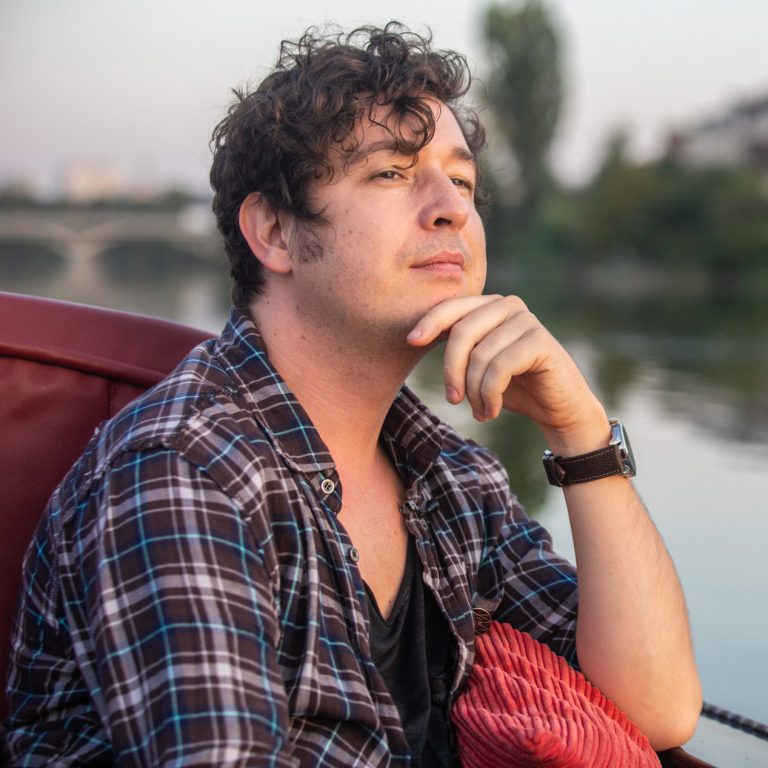The Ambassadors project continues to explore Ukrainian cities and towns, telling stories that surprise even the locals. In the eighth story Dmytro Shurov, musician and frontman of the band Pianoboy, introduces his native Vinnytsia. Tourists come here for the fountains, festivals and other more unusual activities, such as a gondola ride on the Pivdennyi Buh river, while the city’s dramatic development is an attraction in itself. Bogdan Logvynenko, founder of the Ukraїner project, set out with Shurov to see Vinnytsia as it’s seen by locals and tourists.
Over the years, as Vinnytsia grew and sprawled, it absorbed some of the surrounding villages. For example, the former village of Vyshenka (whose name derives from a tributary of the Pivdennyi Buh river) is now an integral part of the city.
— Whereabouts in Vinnytsia did you use to live?
— I’m from a neighbourhood called Vyshenka. It used to be on the very outskirts of the city, surrounded by fields and streams, and now there’s a whole neighbourhood there. I haven’t been back for a long time.
Every year, up to five murals are created in Vinnytsia as part of the art project Vin Art City. This creative initiative to shape the urban environment started in 2015, aiming to create a more attractive image of the city for tourists.
— Have you seen murals on the buildings in Vinnytsia?
— I guess it was in Vinnytsia that I saw murals and street art for the first time in my life. In our neighbourhood, in Vyshenka, some people painted bears and clouds on the facades of buildings. And everyone came to see how cool it was.
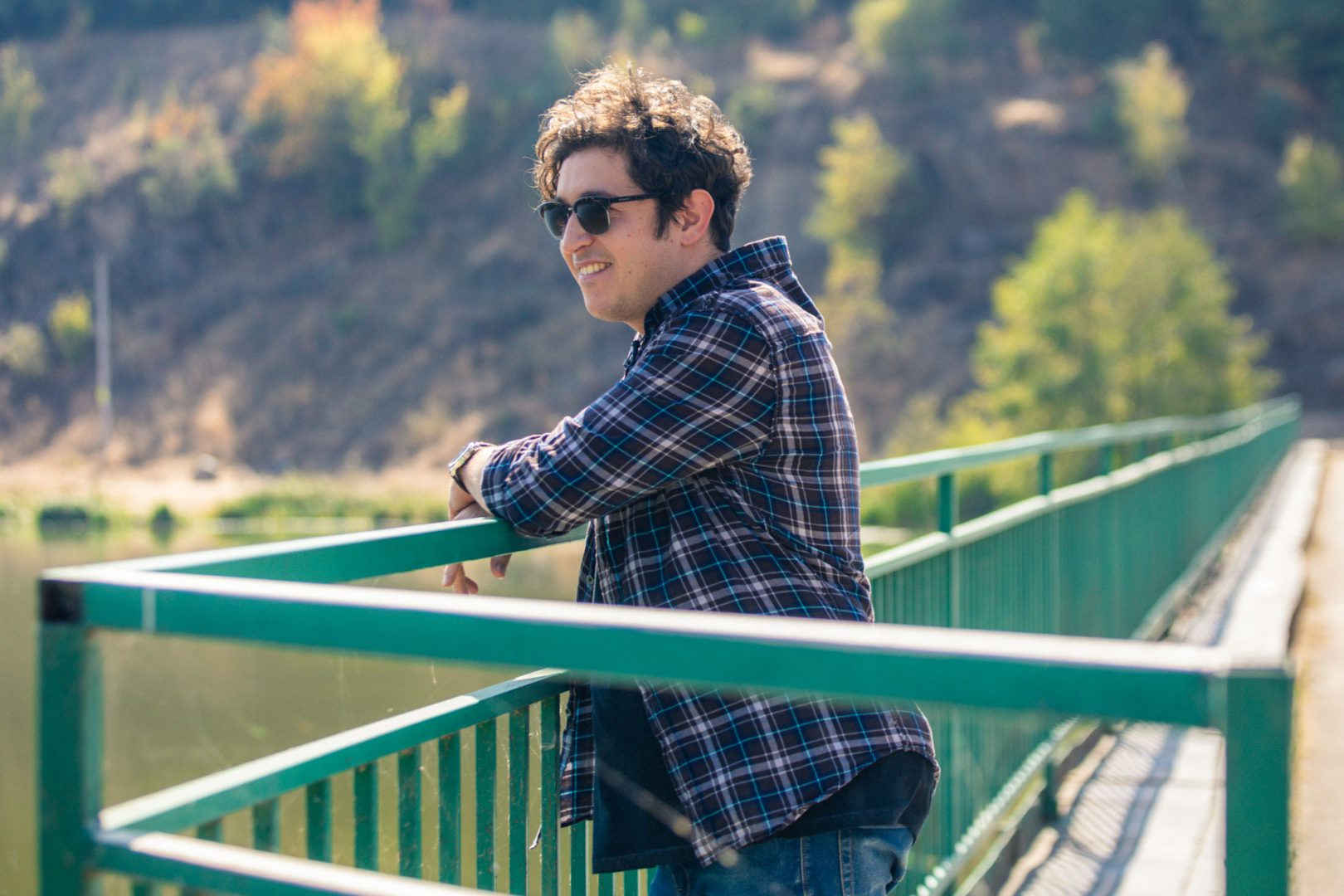
— Are there any special places for you in Vinnytsia?
— When I was a child, my place of power was the Sabarivska hydroelectric power station. I got a bike as a present and started riding to the dam, eight kilometres from home. Not far from the dam, there’s a deciduous forest, not a coniferous one, and there are also vast fields, lots of cows, goats’ droppings and picturesque narrow paths. In fact, I know almost every single stone in this region. Technically, this is my childhood itself.
— Is it a popular place for swimming?
— The dam opens in spring. The water level is very high, and the current becomes very strong. As kids, we had really extreme swimming here at the beginning of summer. When you can’t fight the current at all, and it just carries you away. I remember that feeling very well! In my childhood this river was a place for me to challenge my own strengths, ideas and feelings, so I absolutely love it. It was my secret space.
— What was your childhood like?
— I had a really awesome childhood. It was awesome because I spent a lot of time alone in places like this. I discovered many genuinely peaceful and spiritual locations for myself.
The area around the Sabariv neighbourhood, which lies in the southern suburbs of Vinnytsia, is very popular among the locals. The pleasure boats M.I.Pyrohov and Lialia Ratushna start cruising the Pivdennyi Buh in spring and continue until the late autumn, and next to the rocks of Sabariv there is a stone where the Ukrainian writer Mykhailo Kotsiubynskyi loved to stop for a rest. It’s a granite rock which is not so easy to spot as you walk the narrow paths along the left bank of the river, because after the Sabarivska hydroelectric power station was built, part of the boulder was submerged.
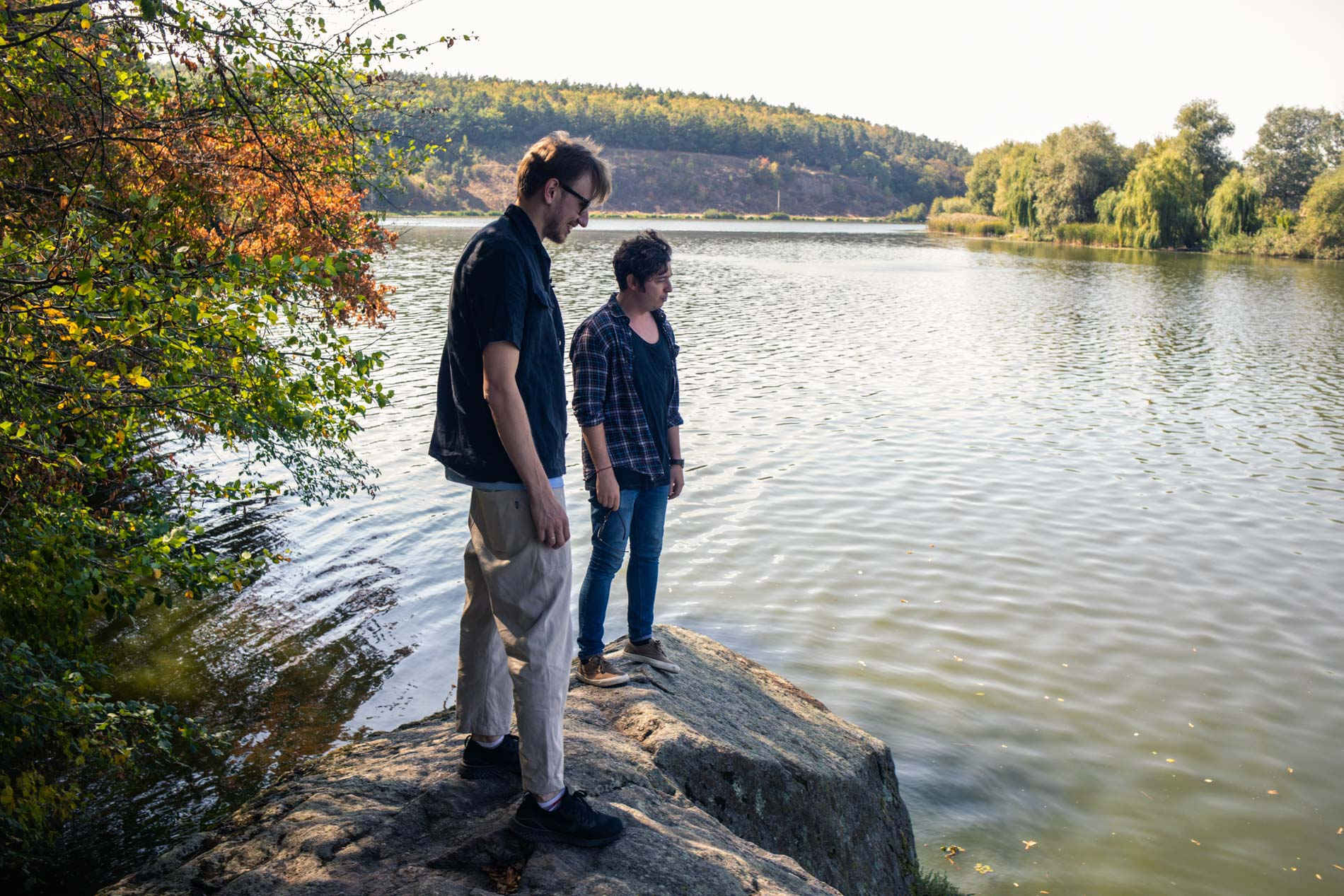
— Are there any legends or stories about the Rock of Kotsiubynskyi?
— According to the legend, he used to come here for inspiration. This is quite likely, because it’s a really great place. There’s a plaque saying he loved to sit here and have a snack. He might have been writing here. It really is an awesome place, and for any creative person from Vinnytsia it’s a perfect hideaway because tourists don’t come this far. They stop over there, and you sit here all alone, like the last of the Mohicans.
— Did these places have any influence on you?
— Vinnytsia is granite. So much granite! I used to climb these rocks. Of course, I never climbed to the very top, but as a child I had the idea of becoming a mountaineer thanks to these rocks. But instead of a mountaineer, I became a pianist. I guess it was my destiny.
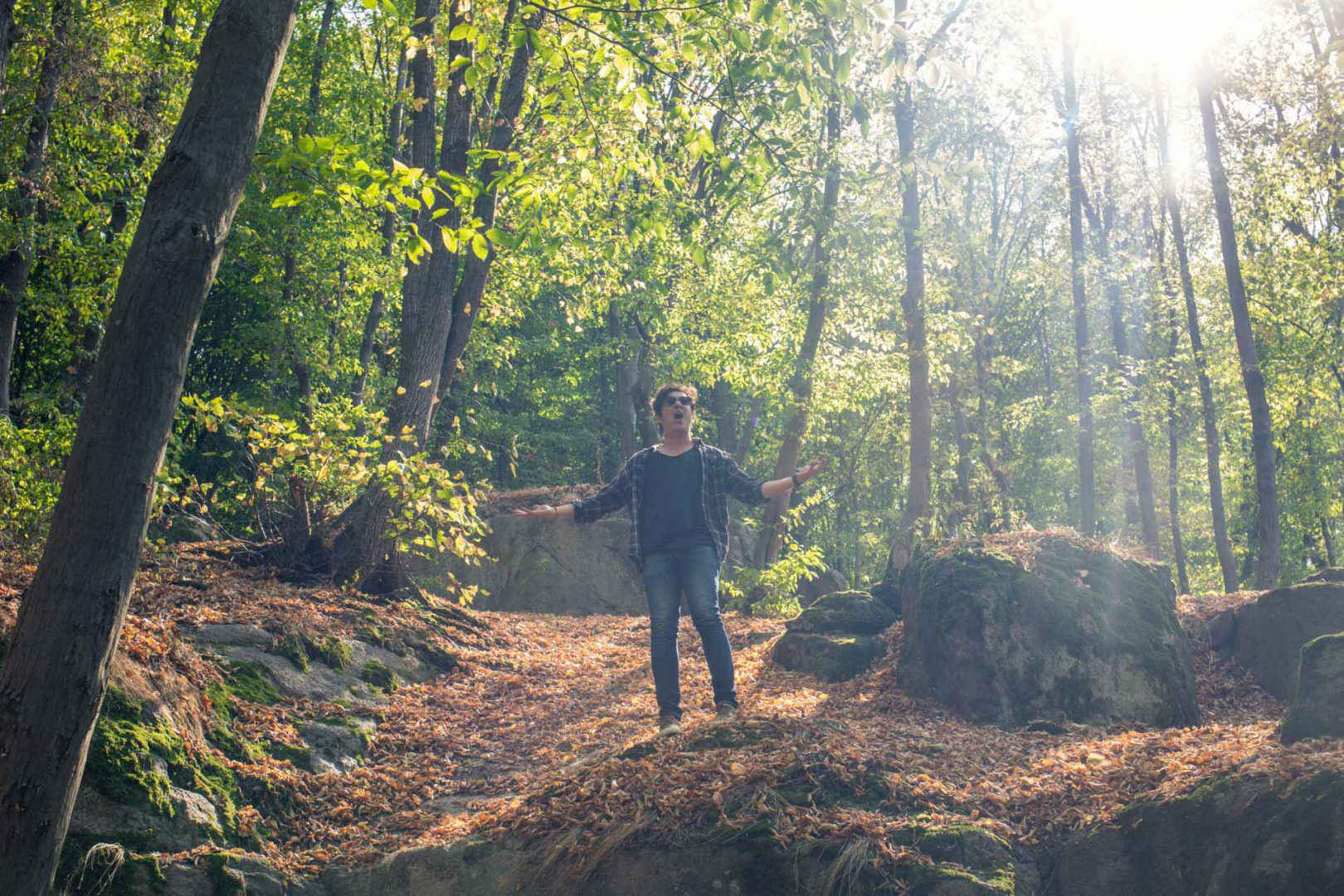
— What’s it like to be a teenager in Vinnytsia?
— There was enough of everything here. I wasn’t really here as a teenager because I had already gone to study in France and the USA, but considering that you’re already a teenager at 13, then yes, I was here. The nineties were the same everywhere: you’d go out, go somewhere, get beaten up once or twice, get your cassette player stolen, get your gloves stolen, and you’d just keep walking. Technically, that’s the way life is: you lose something here, you gain something there. There was crime in the city, but not everywhere, not in every neighbourhood. Where we lived, everything was OK.
— Did you enjoy studying?
— I studied in three schools. One of them was horrible. I talked about it when I released the song ‘Vse shcho tebe ne vbyvaie’ (‘Everything that doesn’t kill you’ — tr.). There was a whole saga about bullying in that school. The school I went to afterwards, School No 21, was great.
— What did you do in your childhood besides music?
— My parents sent me to judo classes. So I did a bit of judo, but it so happened that I got sick, missed a lot of classes, fell very far behind, and realised I’d better switch to something different.
— So you switched from judo to ballroom dancing?
— I did. Besides, there were lots of girls doing ballroom dancing! The best girls in Vinnytsia did ballroom dancing. In my childhood, I’d always choose to go where all the girls were. What can I do about that?
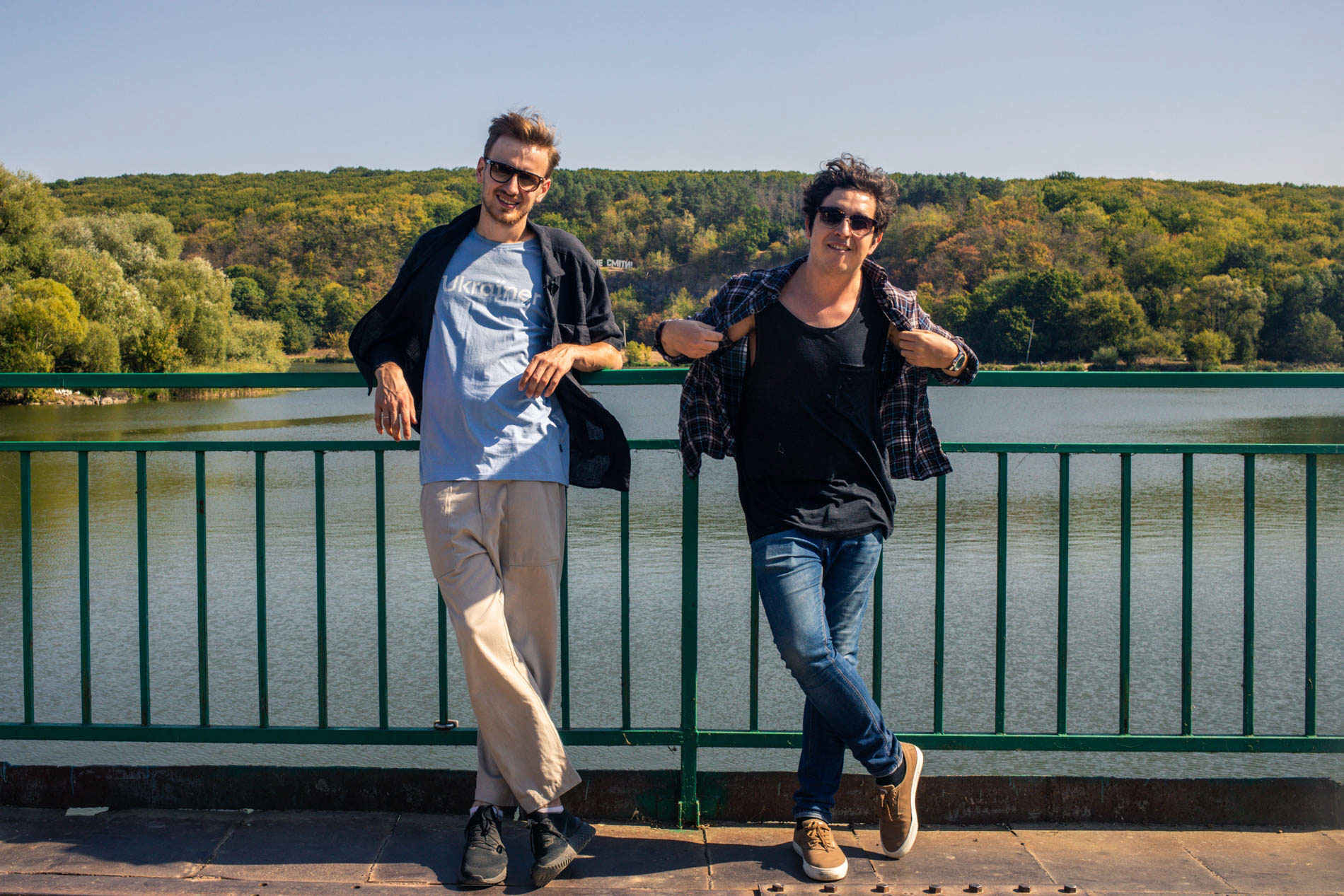
The international campaign HeForShe was started in 2014 by British actress and activist Emma Watson, with support from the UN. The campaign aims at achieving gender equality and defending women’s rights, and was launched in Ukraine in 2018. One of its first and most active ambassadors is Dmytro Shurov; together with his son Lev, he represents Ukraine at events dedicated to the international social movement for gender equality.
— Did being surrounded by women contribute to your becoming an ambassador for the HeForShe campaign?
— In a way. Our last music video (for the song ‘Persha Ledi’ (‘First Lady’ — tr.) which Pianoboy recorded as a duet with hip-hop singer Alina Pash — ed.) is an ode to female diversity and to all the talents hidden inside each woman. I know something about that because women do influence me a bit, and in my life there have always been a lot of women around me, including at work. I came to a conclusion that only with women — as a partnership between a man and a woman — can we create all the best things in life, from children to music.
— What were you like as a child?
— From my early childhood I was an independent lad — I commuted to the city centre, to the music school, by trolleybus. By the way, in Vinnytsia, the trolleybus drivers are Formula 1 drivers. Keletska Street is the straightest street in the city. Driving down this street, they would accelerate really seriously — it was even scary. Picture a typical 1990s scene, with everyone trying to squeeze onto a trolleybus as if it was their last chance to get to heaven — that was exactly how it was. I see that nothing has changed in that respect. Everybody is packed like sardines, then two big fat guys come up and say, “Come on, please, budge up a bit, will you?!” They make the final push and I get crushed a couple of times, given that I’m 1 m 20 tall. But that was just the regular school of life.
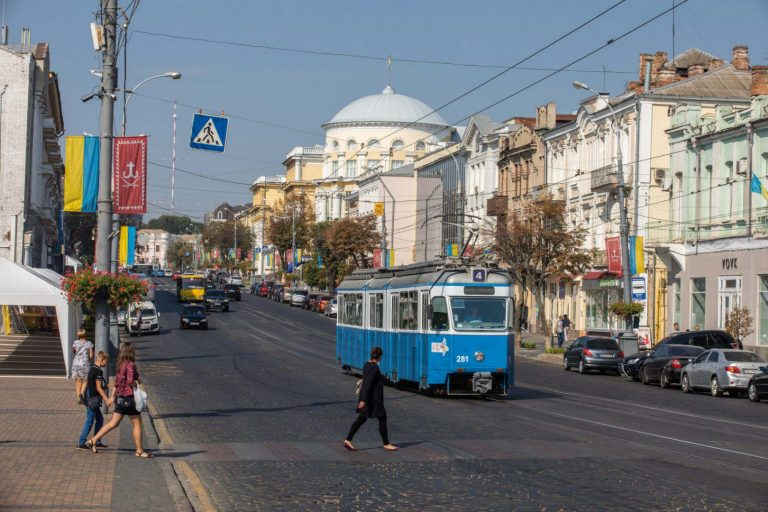
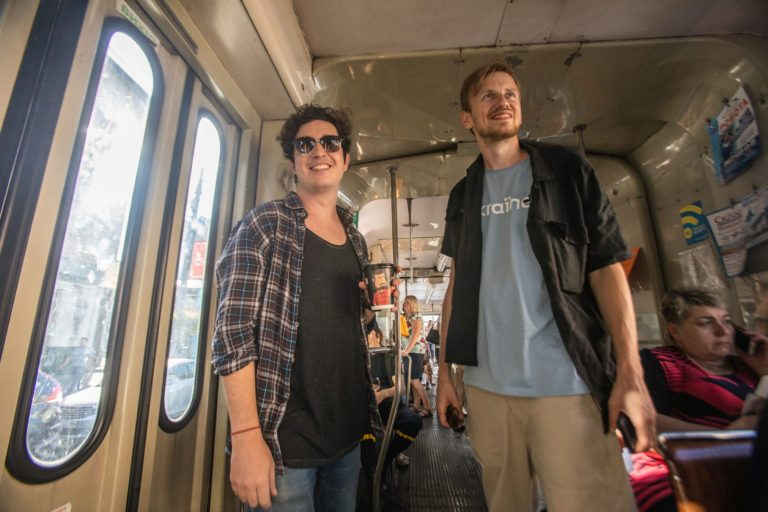
slideshow
— It’s interesting that in Vinnytsia there are hardly any marshrutkas (minibuses used as public transport in the post-Soviet world — tr.) , are there
— True, marshrutkas aren’t popular in Vinnytsia because public transport is quite well-organised here. Trolleybuses and trams run frequently.
— Can you say that Vinnytsia is a comfortable city to live in?
— I believe Vinnytsia is a perfect place to settle down and start a family, to raise kids until they grow up and become teenagers. Of course, it’s much more relaxed than Kyiv.
— Do you remember the moment you decided to say goodbye to Vinnytsia and move to Kyiv?
— Vinnytsia is quite close to Kyiv, so I come here quite often. It never felt to me like a final farewell. I happened to spend some time studying in France at the age of 13. There was a school exchange programme between Vinnytsia and the city of Limoges, and I was the first student to take part. So I studied in France for some time, then went to study in the USA — I got a place on Bill Clinton’s Future Leaders Exchange programme. Because of that, my connection with Vinnytsia was mostly over the phone. Then I came to Kyiv and started studying there (at Kyiv National Linguistic University — ed.).
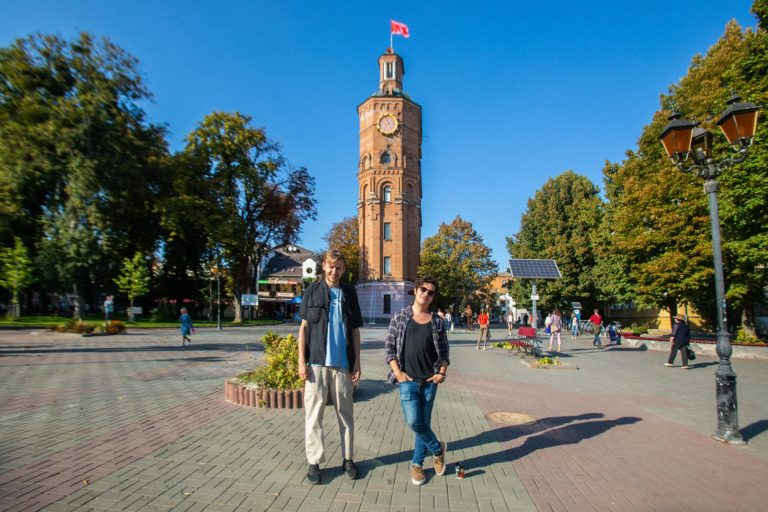
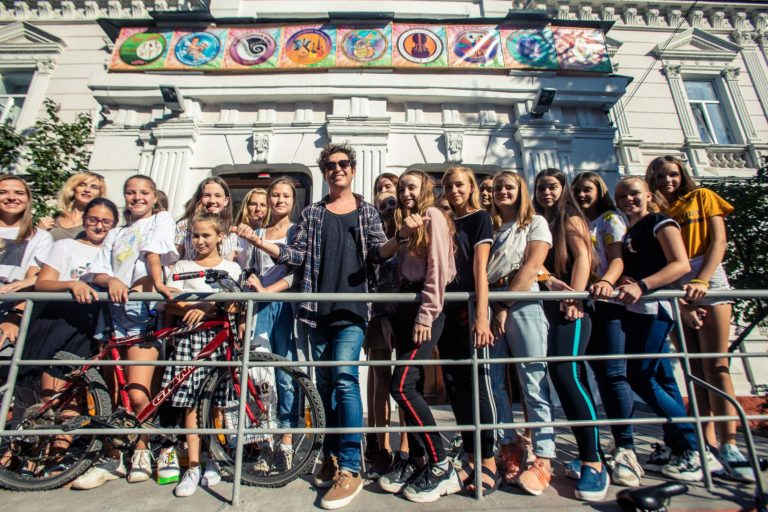
slideshow
— How did it feel to return to Vinnytsia from abroad??
— VIn the late nineties, when I came back from the USA, I remember the city didn’t look good. But both before and after that, there was such a sense of freshness in Vinnytsia. It’s difficult to explain. Although there aren’t so many of them, there are progressive people here who come up with creative ideas and sometimes have the courage to put them into action. For example, during the Soviet period, it was in Vinnytsia that the first self-service department store in Ukraine was built (now a mall called Vinnytskyi Univermah — ed.) . I mean, you wouldn’t buy something in the department, but you’d go to the till — it’s the supermarket system. It was a major breakthrough at the time. There are various examples like that. I don’t remember all of them right now, but there’s something to be proud of.
— УDo you have any relatives in Vinnytsia to visit?
— Both of my grandmas were from Vinnytsia. Sadly, they’ve both passed away. Any time of the day or night — 24/7, as they say in the US — you could come and get varenyky with sour cherries, borshch, biliashi (buns with meat — tr.) and pelmeni (dumplings filled with meat — tr.) simply non-stop. If I had stayed in Vinnytsia, I would’ve been round as a ball before I turned 30. That’s why Vinnytsia holds a special place in my heart, because it was home to so many of my nearest and dearest. Sadly, there aren’t many left. I still have my grandpa, who’s 90 now — Violin Ihorovych Shurov.
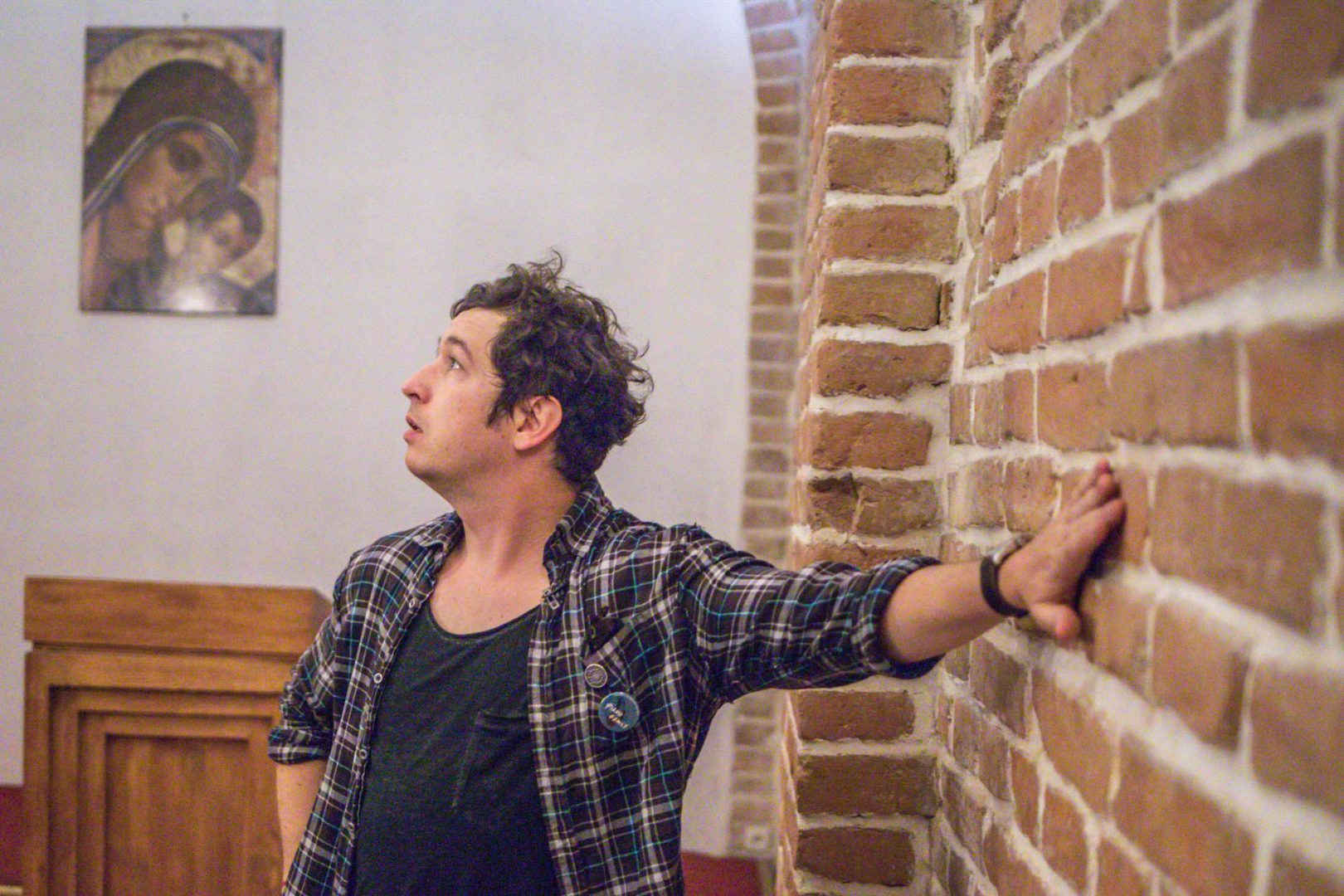
— What did your parents do, and how did they react to your choice to pursue an artistic career?
— I have creative parents. Art didn’t become a profession for them, but they’re creative people. My father is a painter, a poet and a bard, but he founded a bunch of newspapers in Vinnytsia. He’s such a firestarter. I mean, he came up with the concepts for different media outlets, started them up, with varying results, but he switched jobs a lot. For example, he started the Vinnytsia newspaper Tumba (a regional weekly newspaper published between 1996 and 2005 — ed.). The concept was to tell the locals about everything going on in the city, like a theatre poster column (or tumba in Ukrainian — tr.) . He came up with the whole idea, they had their own cool design. I mean, the layout was like a theatre poster, and it was the most popular newspaper in Vinnytsia for years, and my father was its editor-in-chief. But then he went to work on TV.
Another tourist attraction in Vinnytsia is the catacombs of the church of Holy Virgin Mary Angelica, which was founded in 1746 by Capuchin friars who came here from Italy. It is not known for sure what these underground passages were used for, but in the 1960s, part of the tunnel was equipped to serve as a nuclear bomb shelter. The catacombs of the monastery haven’t been preserved in their entirety. They are divided into two parts: the crypts designed as burial places for monks and prominent residents of the city; and the monastery basement, where fruit, honey and beer were stored. Kostiantyn Morozov, the church rector, has been studying the history of the Capuchins in this area for many years, and believes that this place still hides many secrets: “Our first friars came from Czechia, so they started a brewery here. When an epidemic broke out, our friars cooked a beer soup for the hungry and fed hundreds of people. The Gospel mentions the miracle of multiplying wine, the miracle of multiplying bread. Our chronicle records the multiplication of beer.”
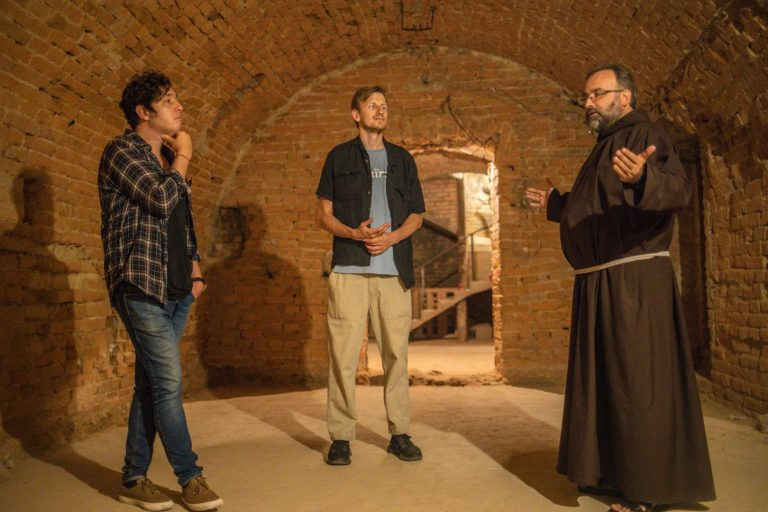
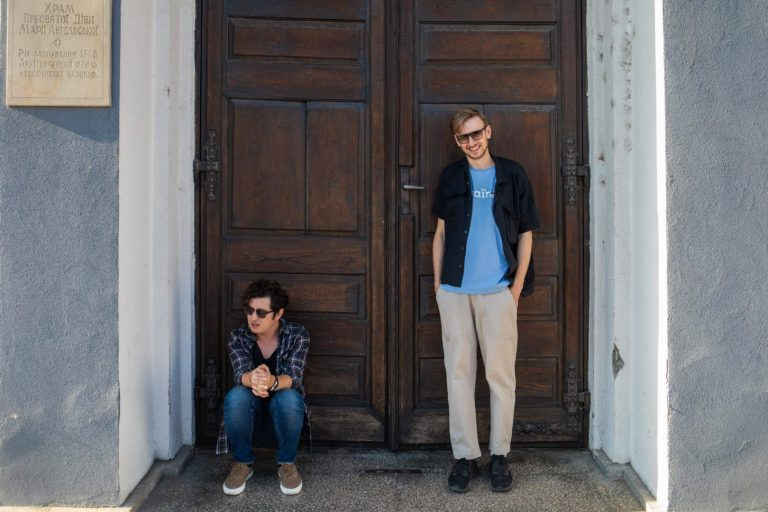
slideshow
— What music did you use to listen to and where did you get it from?
— There was a shop that sold audio tapes, the only one in the city, where you could buy any progressive music for that time: grunge, The Cure, Depeche Mode. Everything that you couldn’t find in the so-called ‘recording studios’. Back then, ‘recording studios’ were shops where you could have music copied onto audio tapes. They would give you this catalogue with a list of singers: Sandra (German pop singer — ed.), Laskovyi Mai (Soviet pop group — ed.), C.C.Catch (German pop and disco singer — ed.), Michael Jackson and lots more. Michael Jackson was the only good thing there. When they recorded an all-Michael Jackson tape for me, I realised it was time to start looking for a new approach to music. I went to the audio tape store and bought everything they had, from Nirvana to early Skryabin (Ukrainian band — tr.).
— When did you realise that music had become your profession?
— It was at a young age, probably around four, that I realised I would be making music. I understood that this was what I wanted to spend my life doing, at least as long as it remained interesting to me. And when I earned my first five bucks — that was when I realised it would become my profession.
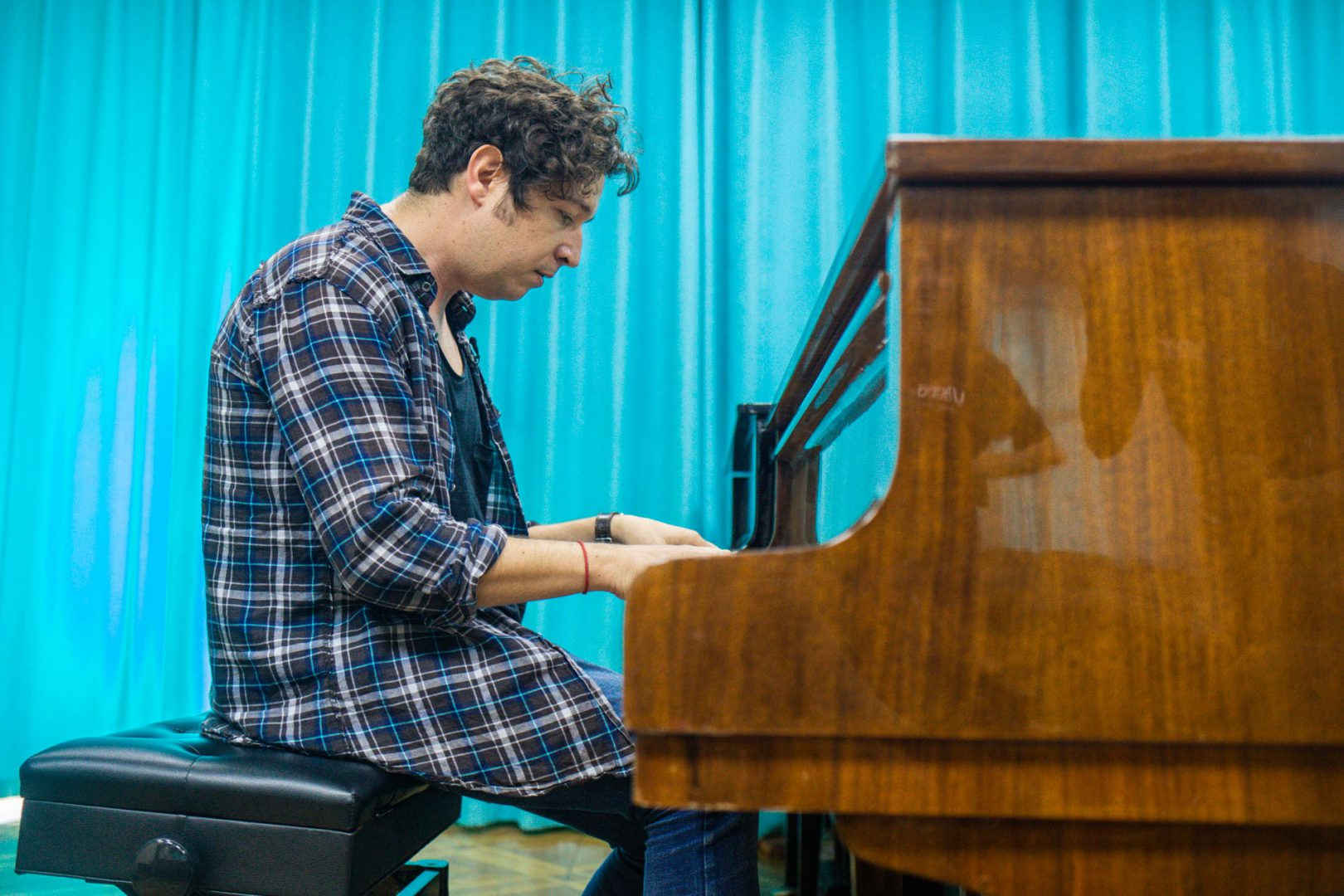
— How did you earn five bucks?
— I was twelve. I made a keyboard track for a local singer. It wasn’t the first one, but previously I’d always been paid in sweets and champagne. Five bucks was a major breakthrough in 1993.
The youth community Archiclub, which unites both architecture students and professional architects, has a mission to improve the urban spaces in Vinnytsia and its suburbs. One of the team’s major projects was the reconstruction of the central square in the town of Illintsi, not far from Vinnytsia, which received a prestigious award in Leipzig for its innovative approach to improving the urban environment.
Maksym Kramar, an architect and one of the co-founders of Archiclub, is confident that the future holds many more opportunities like this: “We’re trying to develop in several directions, to enable young architects to meet, communicate, and share their experience. We hold workshops, invite specialists, and organise lectures, seminars and parties. ‘Fewer monuments, and more people in the space itself’ — that’s our vision.”
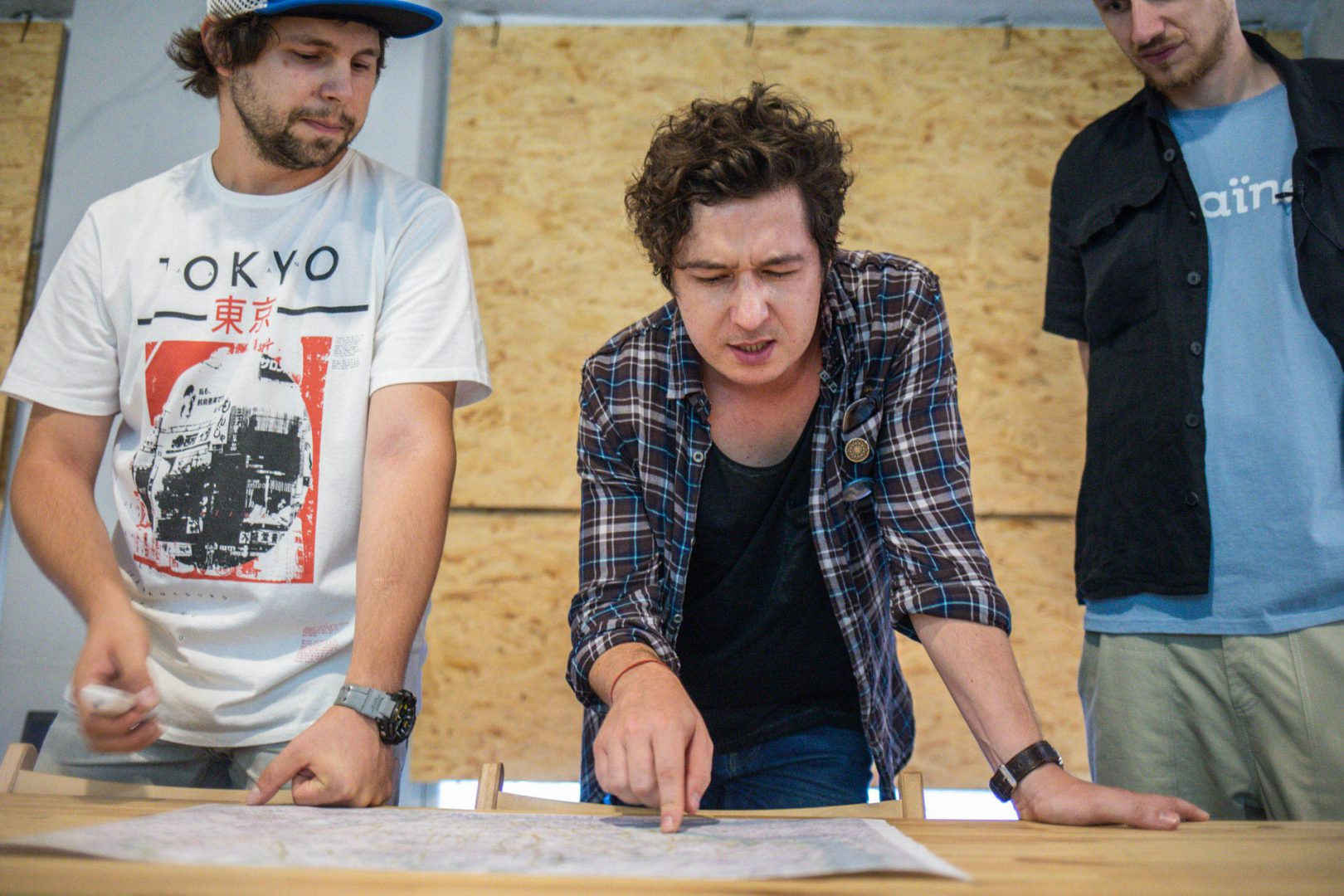
— What was the first band you joined?
— Technically, my first band was Okean Elzy (popular Ukrainian band — tr.). Before that, I used to play jazz in various different places.
— Do you remember coming back to Vinnytsia as a musician?
— Sure. I came to the Sadovskyi Drama Theatre for my first concert with Okean Elzy. Everyone went to sleep at the hotel, and Yura Khustochka(co-founder of Okean Elzy — ed.) suggested that we go for a walk. I said, “Why go for a walk? Let’s visit my grandma!”. So we went to visit her, and of course she gave us varenyky with sour cherry. Yura still remembers them. We met in Paris not so long ago and reminisced about this episode. Grandma is gone, but her varenyky live on in his memory. It was normal back then, whenever we arrived in some city, to go and visit somebody’s parents all together. It happened a lot.
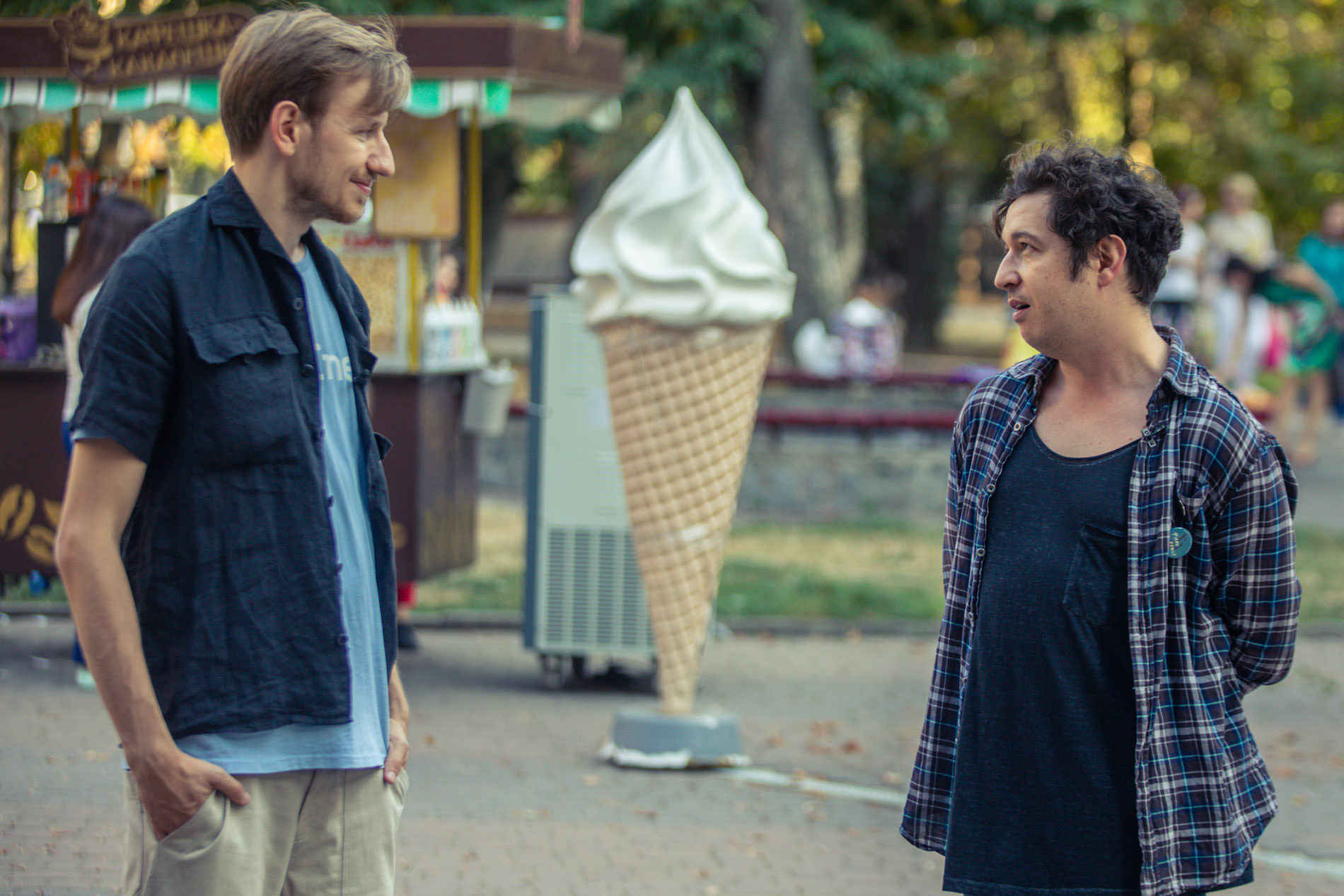
— Were you friends with Yura?
— Yes. Yura always helped people — he’s a very sincere person, he’s introduced so many people to each other. He actually introduced me to my wife (Olha Shurova, also Pianoboy’s PR director — ed.).
In 2017, Dmytro Shurov became a judge in season eight of the musical talent show The X Factor, and won, together with his contestant Mykhailo Panchyshyn. Shurov’s participation in the talent show earned him a somewhat negative reputation. Nevertheless, he appeared in the judge’s seat again in seasons nine and ten.
— How different is your image from the real you?
— Quite different. It wouldn’t be so different if it wasn’t for The X Factor being a deeply edited thing. They film a lot of material, and afterwards the producers are able to build certain images, with a particular slant. The image created for The X Factor is just one part of me, and not my best part.

— Was it your intention to be slightly demonised on The X Factor? Or was it the producers who tried to portray you that way?
— I was different. Just like any person, I’m not perfect. I have my positive sides, I have my failings, and I’m not ashamed of that. I openly show this to people, and then they choose how to edit the video for the show. And what they choose doesn’t always correspond to what I really am.
— What does your solo project Pianoboy mean to you?
— I am the band. The band leader is an accountant, a psychologist, a doctor, a friend, a foe, a motivator, and everything else, all at the same time..
— How does it feel to be the author of the soundtrack to the serial Sluha Narodu (‘Servant of the People’, TV series in which current president Volodymyr Zelenskyi, then an actor, played the role of the president — tr.)
— I wrote it, I can’t deny it! At the time, it was impossible to imagine that that could actually become a reality. It was a fun series and a cool soundtrack, nothing more. I feel as if at some point we, the whole country, just kind of leapt into or entered a parallel reality, because everything is changing so fast. I can’t keep up with everything happening around me at the moment. And about our presidents — well, they’re managers, and we hire them. So let’s watch them! That’s it. No matter who they are.
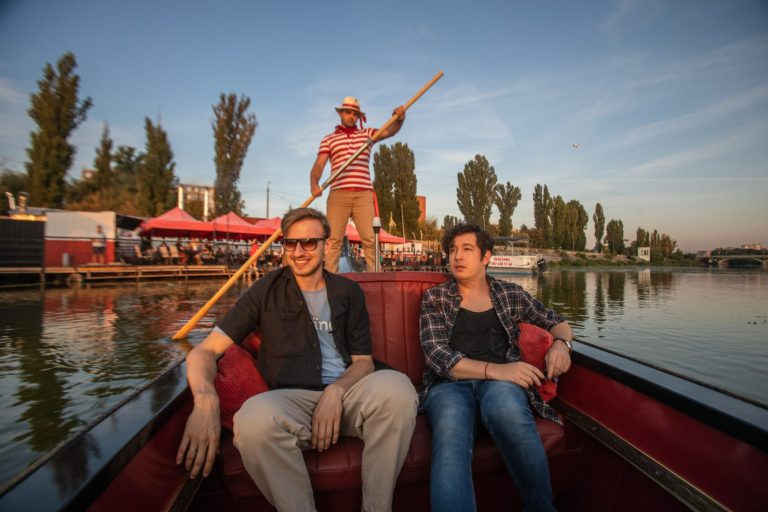

slideshow
In 2018, an unusual form of water transport arrived in Vinnytsia: the gondola. It differs from its Italian counterpart only in colour and size. Local entrepreneur Vitalii Humeniuk, who has now become a real gondolier, decided to introduce some Venetian charm to Vinnytsia: “Our family has a legend. I call it a legend, because my grandma is 84 already, and it’s hard to believe her stories first time round. So, my grandpa, may he rest in peace, made this gondola for my grandma even before my mother was born in 1964. My mother inherited the gondola, and I’m her gondolier.”
— Have you ever had a gondola ride?
— No, never. Even on the many occasions when I visited Venice, I always found it too touristy. But there’s a time and place for everything.

